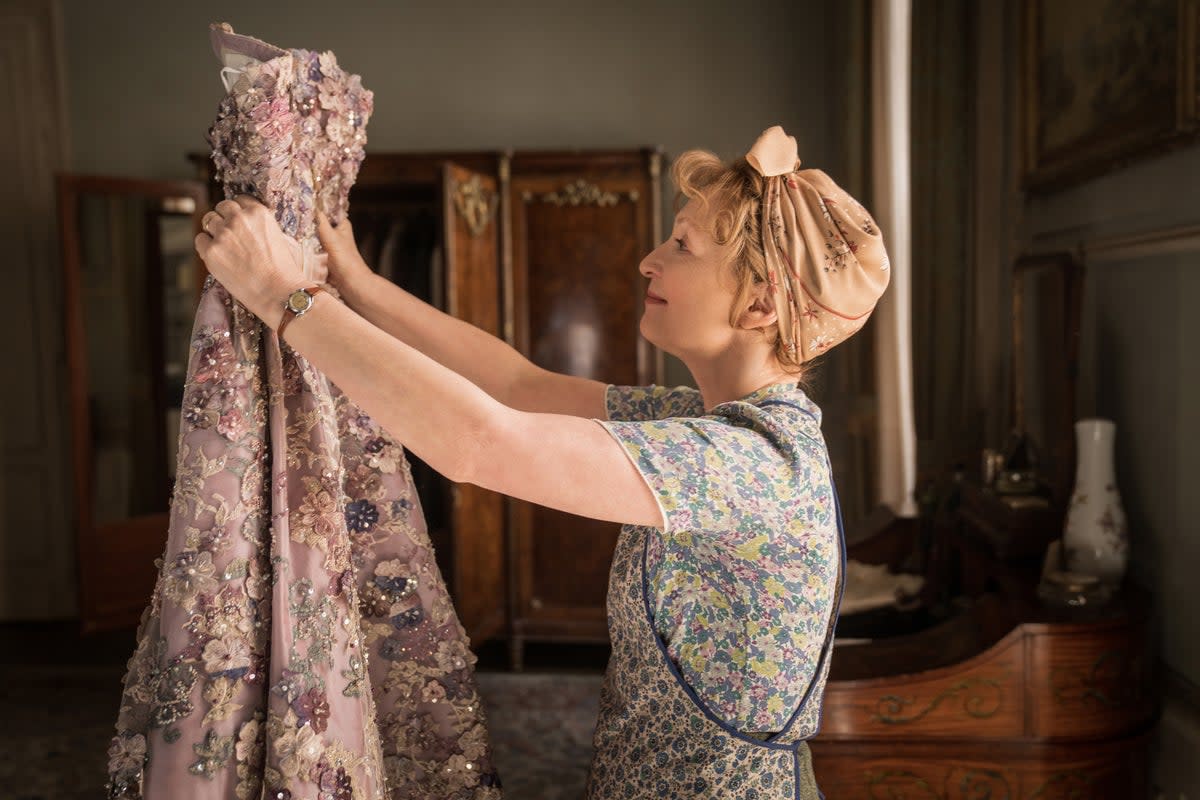OPINION - Mrs Harris Goes to Paris makes a mockery of real working-class life

The new film Mrs Harris Goes to Paris is based on a 1958 novel by the American writer Paul Gallico: no British novelist could romanticise the class system quite so wackily. It is about the adventures of a Battersea char who, heartbroken by the death of her husband, saves up to buy a dress from the House of Dior.
She is a noble savage, a naïf, in a Hilda Ogden headscarf, whistling as she works. She goes to Paris and charms the unhappy and beautiful snobs who haunt the House of Dior. She teaches them her values, and the benefits of selling perfume as well as haute couture, and she saves the House of Dior. The Dior accountant learns to dream, the Dior model learns to follow her heart — she becomes an Existentialist — and the Dior seamstresses learn to unionise. Mrs Harris is the archetypal fairy godmother; except she doesn’t make the ball dress. The only people who don’t learn anything as the film unfolds are the customers.
Is Mrs Harris Goes to Paris based on a true story? someone asks Google. Don’t be stupid. This film is visually pleasing, has a superb cast — Lesley Manville is Mrs Harris, and Jason Isaacs is the bookmaker with a matching heart of gold — and it shows Battersea with working-class people living in it. So why does it feel so offensive? The answer is that it is another example of the lamentable representation of working-class people in commercial cinema. They are presumed to have almost magical powers of decency, and this, on-screen — but not in life — will redeem them from their poverty, at least morally. They fight — though whimsically — for justice, and they are rewarded.
In 2020 we had a “comedy” The Duke, with Jim Broadbent as Kempton Bunton, a bus driver, who in 1961 stole Goya’s painting of the Duke of Wellington to protest against pensioners having to pay the BBC licence fee.
It is a true story but romanticised, with Bunton’s righteous anger portrayed as mere eccentricity. Mrs Harris’s adventures are cut from the same awful cloth: Bunton is forgiven his transgression on screen, due to his personal qualities, and Harris gets not one, but two Dior dresses. The moral is that if you are morally impeccable you are worthy of a Dior dress or a Goya painting, and the gods of cinema will give one to you.
Whether you believe in the fairy tale depends on your credulousness: you might believe that the staff of Downton Abbey love their employers. But there is real working-class culture, and this is a wretched impersonation of it, because it replaces it with something less interesting, less complex, less true. Cinema once had the power to see and change things: now it seems dedicated to inventing an entire culture. We are a long way from the British New Wave of the late Fifties and early Sixties, which gave us Look Back in Anger and This Sporting Life.
But forget those fascinating tales. For now, the devil has the prettiest — the emptiest — tunes.

 Yahoo News
Yahoo News 
